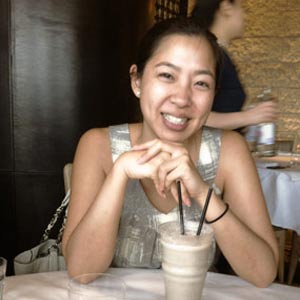 I was born in Freehold, NJ to parents who had been studying in the U.S. and ended up staying. My parents are originally from Hong Kong, where I have now spent about half my life. Having lived abroad for so long, I have often been asked why I don’t just give up my passport, especially considering the fact that the U.S. has a worldwide taxation policy. I can think of two words: pride and privilege.
I was born in Freehold, NJ to parents who had been studying in the U.S. and ended up staying. My parents are originally from Hong Kong, where I have now spent about half my life. Having lived abroad for so long, I have often been asked why I don’t just give up my passport, especially considering the fact that the U.S. has a worldwide taxation policy. I can think of two words: pride and privilege.
America is the country that opened a world of opportunity for my parents, especially my father who is an aeronautics engineer. Had he stayed in Hong Kong, it’s unlikely he would have received funding to do the kind of research he has done. America is the country, whose schools many Chinese still aspire to send their children. I went to public schools up through high school, and attended a liberal arts women’s college. I have had a lot of exposure to the education system in Hong Kong, and I am grateful for the education I received in the U.S. I was encouraged to ask questions, be a free and creative thinker, take risks, and challenge authority in order to right wrongs and fight for what I believe in. This is something that the Chinese culture does not know how to teach or nurture. I am not simply proud of what people think America stands for (i.e the American Dream, freedom, etc.). I am proud of what America actually is — a place that encourages conflicts of ideas. The conflict means that everyone is getting their say, and most are even being heard.
When I visited relatives in Hong Kong as a 6-year-old child, one aunt remarked: “It’s funny that the most powerful country in the world has such a small passport.” In the 80s, the British passports she carried was bigger. That was my earliest experience of American privilege; it can elicit the awkward taste of envy. More recently, I went back to get a degree in psychology at a university in Hong Kong, I could see American privilege in the classrooms. Universities in Hong Kong have been accepting more foreign students from Europe and the U.S. The American students are often very quick to express their opinions. First of all, they feel perfectly at ease conversing in English, which is their mother tongue, compared to most of the local students for whom English is a second, perhaps even third language. Secondly, because of the globalization of American culture, commerce, and geopolitical interests, accurately or not, American students looked to as knowledgeable, if not experts. There is no denying the power of all that is American (just think of the mad scenes of A&F’s recent flagship store opening in Hong Kong when A&F models rode around Hong Kong topless on top a double decker bus).
With all the privilege we have in the world though, we have yet to learn to wield it responsibly and wisely. On some issues, we are downright exploitative and abusive of our privilege (Would Americans tolerate working conditions that led to its workers committing suicide within its own borders? The U.S. not only has not lead efforts to solve the climate crisis, but consistently takes a you-first stance). America is not just for Americans. We are a beacon of hope for so many people around the world. I feel it every time I travel to China when I watch a person’s eyes light up on finding out I am an American. I hope Americans understand our privileged place in the world, and accept the responsibilities that come with such privilege. I hope we will continue to work for and uphold the values that makes my own eyes light up with pride when I say, “I’m American.” For me, those values are a fundamental respect for all people, a willingness to safeguard human rights (regardless of nationality), and an enthusiasm for ideas in conflict.
For a comprehensive story of America, it may be worth asking non-Americans about what America means to them, and their experiences with Americans and in America. After all, the great sages have often taught that happiness comes from letting go of the self, and focusing on connecting with others instead. If we can learn to be less narcissistic, we may be on our way to taking leadership on global issues that will ultimately help solve our domestic malaise.
Please support Story of America with a tax deductible donation.
